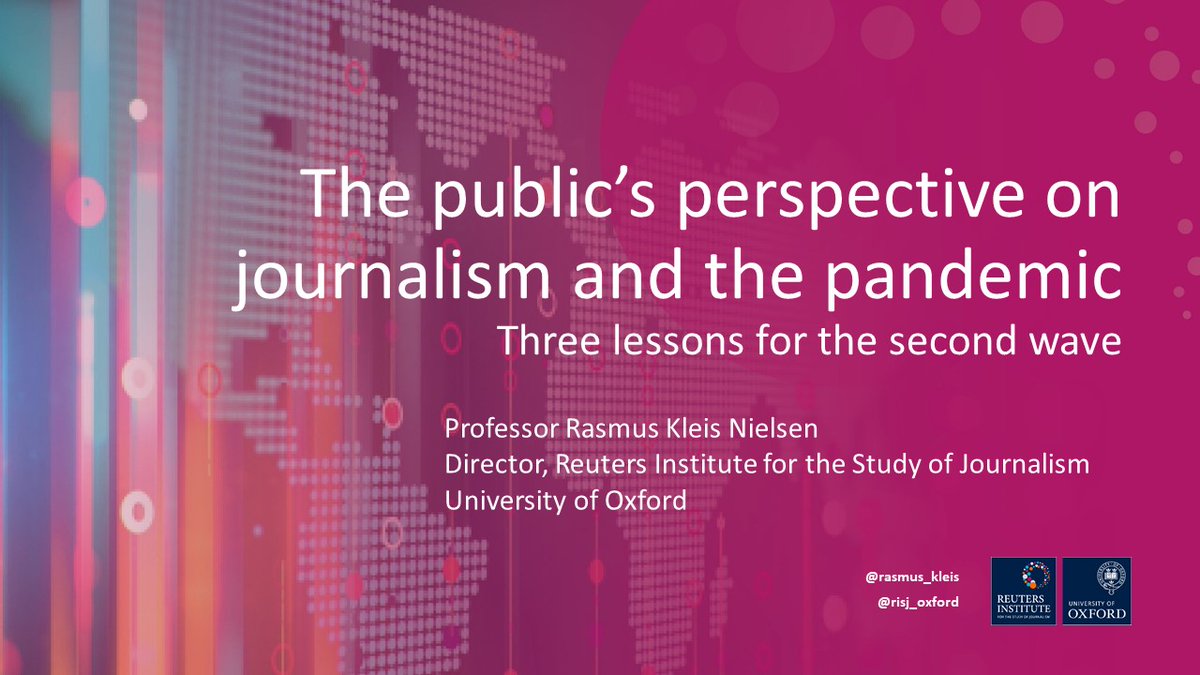
On Trump & platforms: A decision can be welcome and still illustrate problematic situation
3 Qs. 1) Consistent enforcement? Companies are often wildly inconsistent in when, where, who they enforce against. Decisions+timing come off as at best arbitrary at worst opportunistic 1/N
3 Qs. 1) Consistent enforcement? Companies are often wildly inconsistent in when, where, who they enforce against. Decisions+timing come off as at best arbitrary at worst opportunistic 1/N
E.g. Why now, and not before (outgoing and not sitting president)? Why in the US and not elsewhere (India, Philippines)? Why jihadists but not white domestic terrorists (I have a guess)? Why do they almost all do it at the same time (that’s PR, not rules)?
2) Protection of fundamental rights? In absence of real oversight, the companies are making these decisions unilaterally. Often they do too little. Sometimes they do too much. There is no meaningful due process, and no way to ensure companies practice e.g. Santa Clara Principles.
Some of this is specifically US problem w/rigid public/private distinction in contemporary 1st amendment law. But due to the way companies operate it often in practice becomes a global one. Though perhaps we see beginning of horizontal application of fundamental rights in Europe?
3) Difference between platforms for speech and platforms for services, and between speech moderation and service moderation? While far from unprecedented (Wikileaks, Gab, pressure on Tumblr), the Amazon, Apple, Google decisions on Parler still strikes me as different from social.
Line btw speech and service platform not simple to draw but it is one thing to suspending account (Twitter) or individual posts (YouTube) vs removing Parler? Especially biggest and most powerful companies, both for speech and services, surely should have different obligations?
Wrote thread response to @courtneyr
Am most struck by how arbitrary+opaque decisions by powerful private companies remain - even when welcome - and how much more consistency, clear basis in fundamental rights, oversight I think we need
https://twitter.com/courtneyr/status/1348394311940005891and repost it here.
Am most struck by how arbitrary+opaque decisions by powerful private companies remain - even when welcome - and how much more consistency, clear basis in fundamental rights, oversight I think we need
Too many good threads to list here but in addition to the people I always learn from here are some that stood out
@AmarAmarasingam
@deblebrown
@glakier
@DiaKayyali is short and key
@AmarAmarasingam
https://twitter.com/AmarAmarasingam/status/1348147867739975681
@deblebrown
https://twitter.com/deblebrown/status/1348028909351272448
@glakier
https://twitter.com/glakier/status/1348280186685575169
@DiaKayyali is short and key
https://twitter.com/DiaKayyali/status/1348285979350630400
Oh, and two more @jilliancyork's "Everything pundits are getting wrong about this current moment in content moderation" jilliancyork.com/2021/01/10/eve… and @alexstamos reading list
Surprising nobody, blowhards have opinions on things about which they know nothing
https://twitter.com/alexstamos/status/1347942615509946374
Surprising nobody, blowhards have opinions on things about which they know nothing
• • •
Missing some Tweet in this thread? You can try to
force a refresh












